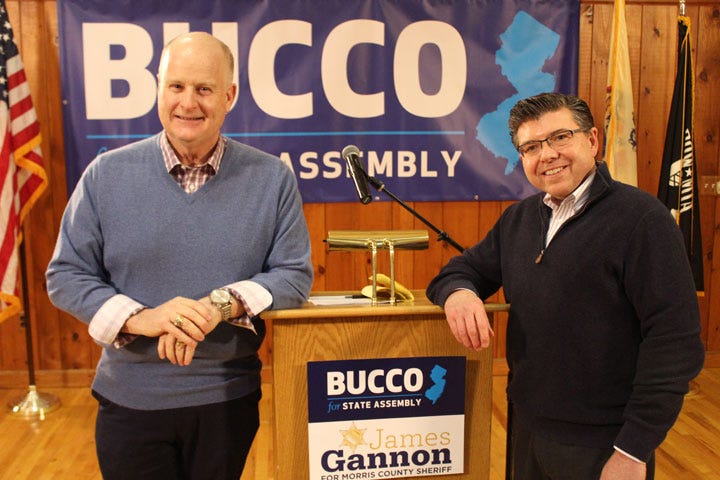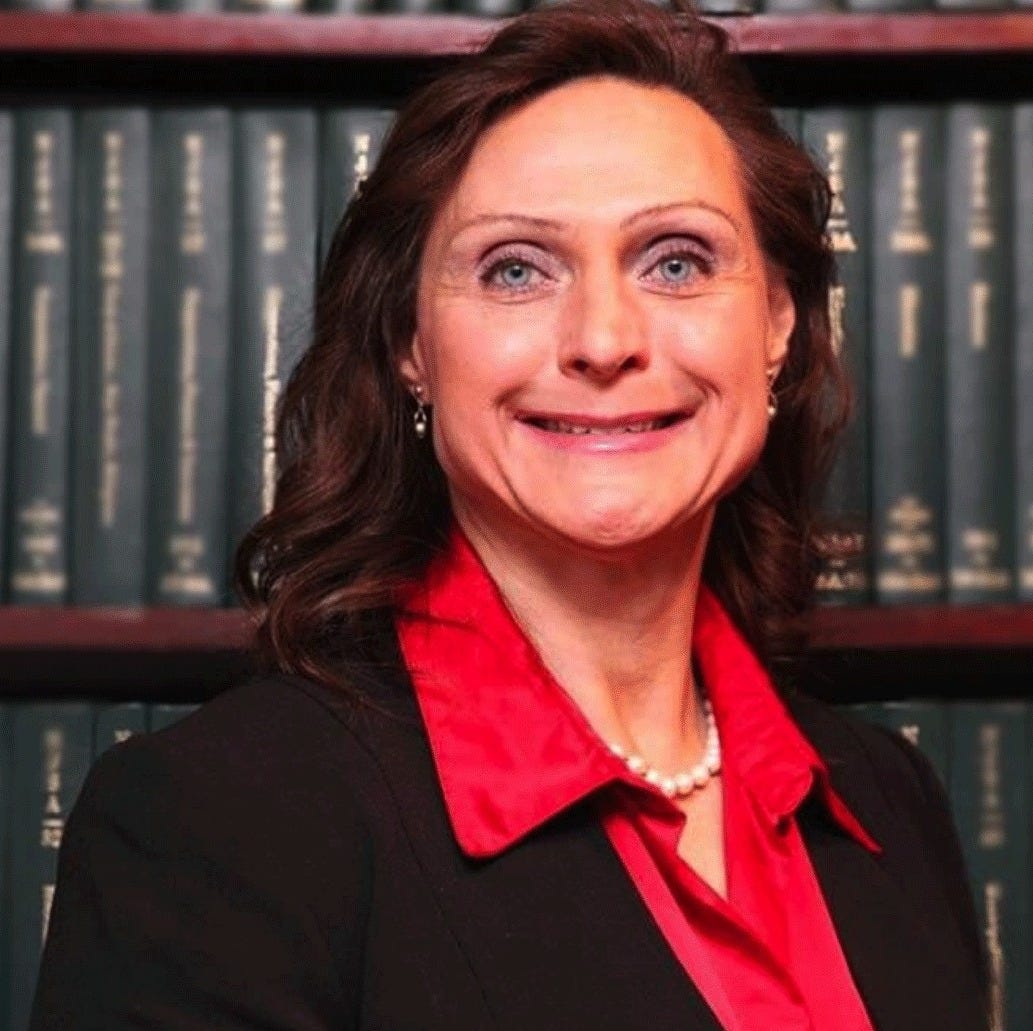By Richard Luthmann
On a recent episode of The Unknown Podcast, hosts Michael Volpe and Richard Luthmann tackled the controversy surrounding Heather Darling, the twice-elected Morris County Surrogate whose past as a dominatrix and bodybuilder has rocked New Jersey’s political establishment.
The discussion raised critical questions about transparency, the complicity of GOP leaders, and the public’s right to know about a candidate’s history before casting their vote.
“Whips, Chains, and Wills”: A Controversial Career Path
Volpe opened the segment by quoting the article headline: “Whips, Chains, and Wills for BDSM Morris County Surrogate Judge.”
Luthmann followed by breaking down Darling’s unusual trajectory from bodybuilding star to dominatrix to judicial officer.
“Heather Darling was a bodybuilder in the early 2000s,” said Luthmann. “She was on The Jenny Jones Show, flaunting her muscles and talking about wrestling and domination sessions.”
Darling’s promotional materials at the time offered her services for wrestling, muscle worship, and light domination. For $12, she also sold topless photos showcasing her physique.
“This was her business,” Volpe interjected, noting that while legal, such activities raised ethical concerns when placed in the context of her current judicial role.
Morris County GOP: What Did They Know?
The podcast quickly shifted focus to the Morris County Republican Party. Both hosts highlighted Darling’s impressive list of endorsements from GOP heavyweights like Senator Joe Pennacchio, Senator Anthony Bucco, and Morris County Sheriff James Gannon.

“Did these leaders know about her past?” Luthmann asked pointedly. “If they didn’t, then they failed to vet her. If they did, they actively misled voters.”
The podcast revealed that Luthmann’s team had sent over 35 emails to local GOP leaders, including Darling’s endorsers, asking whether they were aware of her dominatrix history. “We got crickets,” he said, emphasizing the lack of response.
Volpe added, “This isn’t just about Darling. This is about how political machines like the Morris County GOP manipulate information to control elections. Voters deserve full disclosure.”
A “Red as You Can Get” County
Luthmann and Volpe underscored the irony of Darling’s election in Morris County, a bastion of conservatism.
“This was George Washington’s winter camp,” Luthmann said, referencing the Morristown area’s historical significance. “It’s as red as you can get—deeply conservative, where family values are central to Republican ideology.”
Luthmann argued that the GOP’s failure to disclose Darling’s past represents a betrayal of those values.
“If the voters knew everything about her, and they still elected her, fine. But they didn’t. This was withheld from them.”
Volpe Questions Relevance
Volpe played devil’s advocate, suggesting that Darling’s past might not matter if her record as a surrogate is solid.
“Has anyone criticized her actual performance as a surrogate judge? From what I’ve seen, her record is fine.”
Luthmann acknowledged that Darling had performed her duties well but insisted that the issue wasn’t her competence—it was transparency.
“The public has a right to know if their judicial officer once earned a living delivering pain and humiliation to clients. That’s relevant, especially in a conservative stronghold like Morris County.”
The Sheriff’s Endorsement
The podcast also explored Darling’s long-time relationship with former Morris County Sheriff Ed Rochford, who publicly endorsed her during her first campaign in 2019. Luthmann pointed out that Rochford, as her romantic partner, almost certainly knew about her dominatrix past.
“Rochford’s endorsement came without any mention of their relationship or her history,” Luthmann said. “It’s hard to believe this wasn’t a calculated move to secure her election.”
Public vs. Private Personas
Volpe and Luthmann discussed how Darling’s case fits into broader debates about personal reinvention and public accountability. While Volpe argued that Darling’s past shouldn’t overshadow her current performance, Luthmann maintained that the concealment itself was the real problem.
“In a post-Bill Clinton and Donald Trump world, the public is willing to forgive almost anything,” Luthmann said. “But only if they’re told the truth upfront. The problem here is the GOP’s deliberate obfuscation.”
Bigger Questions for Morris County
The conversation ended with a broader critique of Morris County’s political machine. Luthmann teased an ongoing investigation into the county’s judiciary and GOP leadership.
“The Darling story is just the tip of the iceberg,” Luthmann said. “This is about how judges are chosen, how political endorsements are secured, and how the system protects itself. If we don’t shine a light on these practices, nothing will change.”
Volpe agreed, adding, “This isn’t just a local story. It’s a case study in how political machines operate across the country. Morris County is just one example of a much bigger problem.”
Final Thoughts
The podcast left listeners with a provocative question: How much should a candidate’s past matter? While Darling’s history as a dominatrix may not affect her competence, the lack of transparency surrounding her election raises serious ethical questions about the GOP’s role in shaping public perception.
As Luthmann put it, “If we don’t know how the sausage is made, how can we trust what’s on our plate?”
The Unknown Podcast promised more investigative revelations about Morris County in future episodes, keeping the pressure on local leaders to address these mounting concerns.






















Share this post